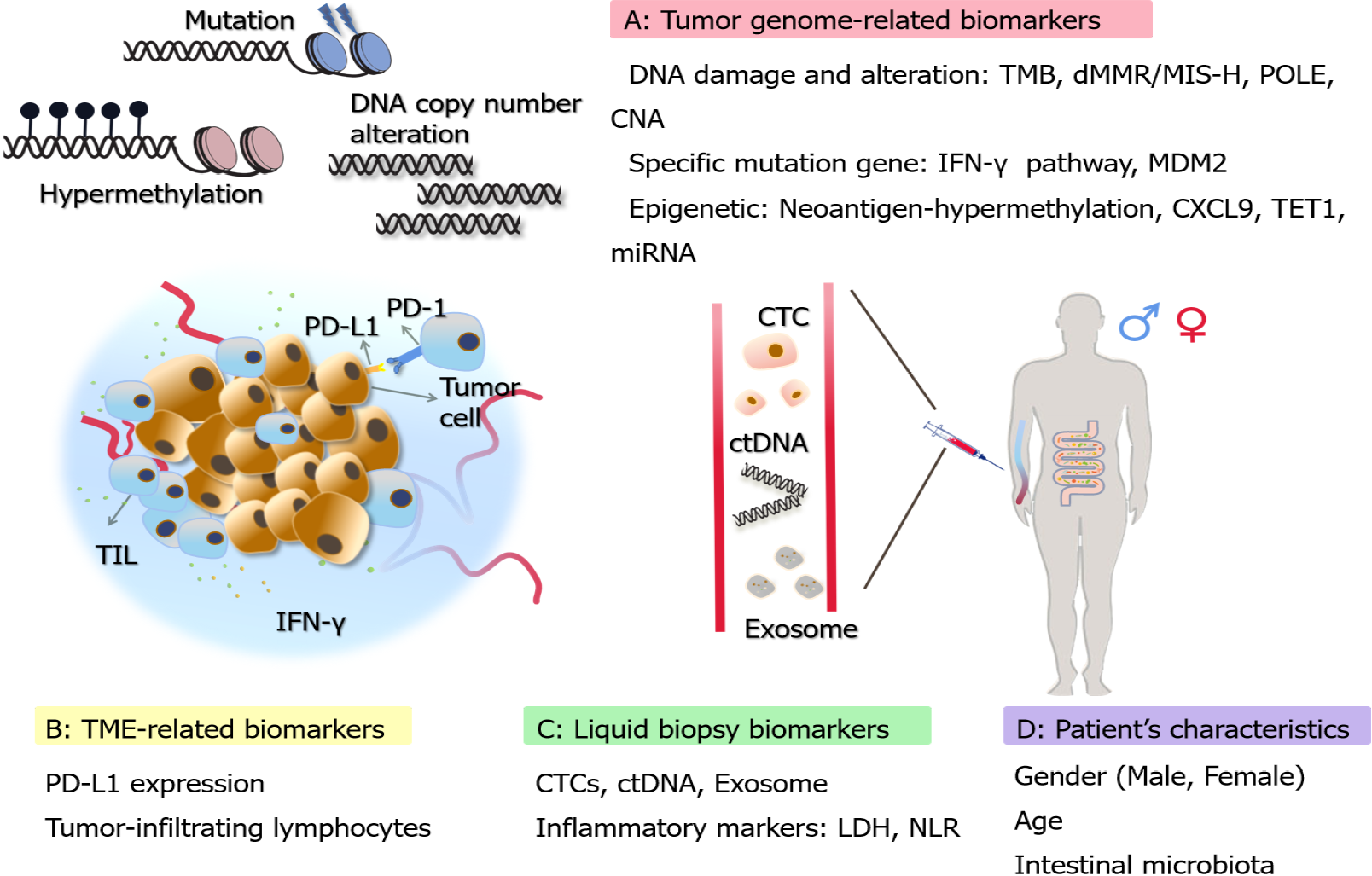Copyright
©The Author(s) 2022.
World J Gastrointest Oncol. Jan 15, 2022; 14(1): 19-37
Published online Jan 15, 2022. doi: 10.4251/wjgo.v14.i1.19
Published online Jan 15, 2022. doi: 10.4251/wjgo.v14.i1.19
Figure 1 Brief overview of immune checkpoint inhibitor-related biomarkers in gastrointestinal cancers and some novel biomarkers being developed.
A: Tumor genome-related biomarkers. The biomarkers in this category are divided into three groups: DNA damage and alteration, including tumor mutation burden, mismatch repair deficiency/high-microsatellite instability (dMMR/MSI-H), POLE, and copy number alteration (CNA); specific mutation genes, including IFN-γ pathway and MDM2; epigenetic alterations, including neoantigen-hypermethylation, CXCL9 epigenetic modification, TET1, and miRNAs; B: TME (tumor immune microenvironment) related biomarkers. PD-L1 expression and tumor infiltrating lymphocytes are involved. In this review, CD8+ and CD39+CD8+ cells are mainly mentioned; C: Liquid biopsy biomarkers. CTCs, ctDNA, and exosomes are grouped into one group. Inflammatory markers taken from peripheral blood are divided into a separate subcategory, including lactate dehydrogenase and neutrophil-to-lymphocyte ratio; D: Patient’s characteristics. The patient’s gender, age, and intestinal microbiota are classified in this category. ICI: Immune checkpoint inhibitor; GI: Gastrointestinal; POLE: Polymerase gene epsilon; MDM2: Murine double minute 2; CXCL9: Chemokine (C-X-C motif) ligand 9; TET1: Ten eleven translocation 1; PD-1/L1: Programmed cell death-1/Ligand 1; ctDNA: Circulating tumor DNA; CTC: Circulating tumor cells; LDH: Lactate dehydrogenase; NLR: Neutrophil-to-lymphocyte ratio; TIL: Tumor infiltrating lymphocytes.
- Citation: Li M, Kaili D, Shi L. Biomarkers for response to immune checkpoint inhibitors in gastrointestinal cancers. World J Gastrointest Oncol 2022; 14(1): 19-37
- URL: https://www.wjgnet.com/1948-5204/full/v14/i1/19.htm
- DOI: https://dx.doi.org/10.4251/wjgo.v14.i1.19









